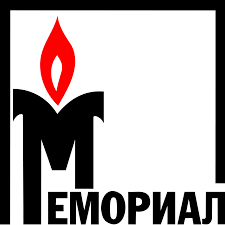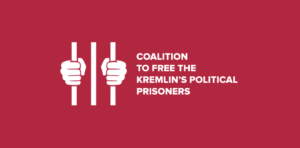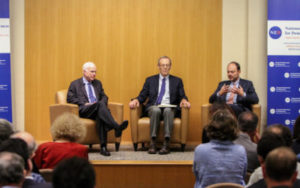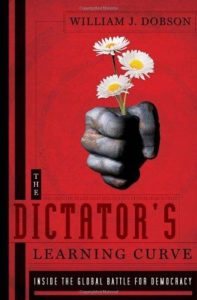The West’s democracies must help Ukraine to resist Russia and to liberate all temporary occupied territories, including Crimea, a leading activist said today.
“The logic of authoritarian leaders is very understandable: they see any attempt (at) dialogue as a sign of weakness,” Nobel Laureate Oleksandra Matviichuk (above) told a news conference in Oslo.
 Her Center for Civil Liberties, Russian rights group Memorial and jailed Belarusian activist Ales Byalyatski were awarded the 2022 Nobel Peace Prize amid the worst conflict in Europe since World War II. The award ceremony will be held on Saturday.
Her Center for Civil Liberties, Russian rights group Memorial and jailed Belarusian activist Ales Byalyatski were awarded the 2022 Nobel Peace Prize amid the worst conflict in Europe since World War II. The award ceremony will be held on Saturday.
“We must establish an international tribunal to hold Putin, (Belarusian President Alexander) Lukashenko and other war criminals accountable,” Matviichuk added.
“We have to continue our fight honestly and the result will unexpectedly be achieved,” she said, in conversation with NED President Damon Wilson (below).
Ukraine was not only fighting for its independence but also for the survival of a peaceful international order, said the Russian laureate, Memorial.
“It is fighting for international law. It is fighting for our joint peaceful future,” Yan Rachinsky, chairman of the international Memorial board, told the same news conference. “The choice before the international community … is between the unpleasant situation today and the catastrophe tomorrow.”
Rachinsky said he was not worried about his own security amid the crackdown but “the situation of human rights defenders, unfortunately, is very bad today in Russia.
 “Many have been imprisoned for a long time. Some are being persecuted today. And this is unlikely to improve quickly. But, nevertheless, there are people who continue this work and will continue,” he said.
“Many have been imprisoned for a long time. Some are being persecuted today. And this is unlikely to improve quickly. But, nevertheless, there are people who continue this work and will continue,” he said.
As if to prove his point, Russian opposition politician Ilya Yashin was sentenced in court to eight-and-a-half years in prison on Friday on charges of spreading “false information” about the army, Reuters reports.
“The verdict against Yashin is a travesty of justice and an act of cowardice, directed by a Kremlin that feels threatened by vocal and visible critics like him,” said Rachel Denber, deputy Europe and Central Asia director at Human Rights Watch.
 The harsh sentence has heightened concern at the prospect of a similarly harsh sentence for another leading Russian democracy advocate.
The harsh sentence has heightened concern at the prospect of a similarly harsh sentence for another leading Russian democracy advocate.
In April, a Russian court charged Vladimir Kara-Murza under the same article, after he called the Russian government “a regime of murderers” in an interview. On Thursday, Russian media reported that Kara-Murza will remain in pretrial detention until Feb. 12, The Post adds.
“I think often of Vladimir Kara-Murza, a Russian opposition figure and journalist who was living in the U.S. but went back to Russia around the time of the Ukraine invasion despite two assassination attempts and knowing he would be thrown in jail,” says Freedom House president Michael Abramowitz. He wrote recently that current developments “point to an eventual reversal of the dismal trends” of democratic reverses of recent years.

Vladimir Kara Murza (right) with former NED President Carl Gershman (center) and Senator John McCain
Kara-Murza is one of the “many remarkable people out there who are risking everything to bring freedom to their countries. That gives me hope,” he tells The NYT’s Peter Baker:
Time and history are not on the dictators’ side, Every day people are willing to risk all for the right to live in freedom, peace and dignity. I wouldn’t underestimate the willingness of Russian, Iranian and Chinese regimes to respond brutally to the protests to hold onto power. But yes, I am optimistic.
What’s more important to the success of a protest movement in an authoritarian country, the movement itself or the political context in which it operates? GRID’s Joshua Keating asks Srdja Popovic, one of the founders of the Serbian student movement Otpor! and the Center for Applied Nonviolent Action and Strategies (CANVAS). There’s this very old debate about “skills” versus “conditions.” And I’m always on the side of skills, says Popovic:
What’s important is whether the movement can build a strategy, make clear demands and build an organization that can sustain oppression. This matters more than the conditions. You can have all the best conditions in the world for social change: a weak government, a failing economy, international isolation, an educated middle class, but still movements can fail as we’ve seen in places like Zimbabwe and Venezuela, because they lack the skill to make their point.
 But democracy activists must adapt and innovate in response to changing autocratic strategies.
But democracy activists must adapt and innovate in response to changing autocratic strategies.
If you read Will Dobson’s book, “The Dictator’s Learning Curve,” you’ll see how some regimes learn and some don’t learn, Popovic adds:
The masters of learning are China. They learned from the Arab Spring, and they’re continuing to learn, and they’re learning in the prevention direction. Less and less authoritarians want to use brute force. It’s not because they have a personal problem with killing people and detaining people. It’s because for the last 10 or 15 years, it is authoritarian soft power that won them a lot of victories.
“We have to continue our fight honestly and the result will unexpectedly be achieved”– Nobel laureate Oleksandra Matviichuk @avalaina, in conversation with @DamonMacWilson, on how human rights defenders will overcome massive obstacles to see through a better future #Nobel pic.twitter.com/DHxyenZYG5
— Christopher Walker (@Walker_CT) December 9, 2022







